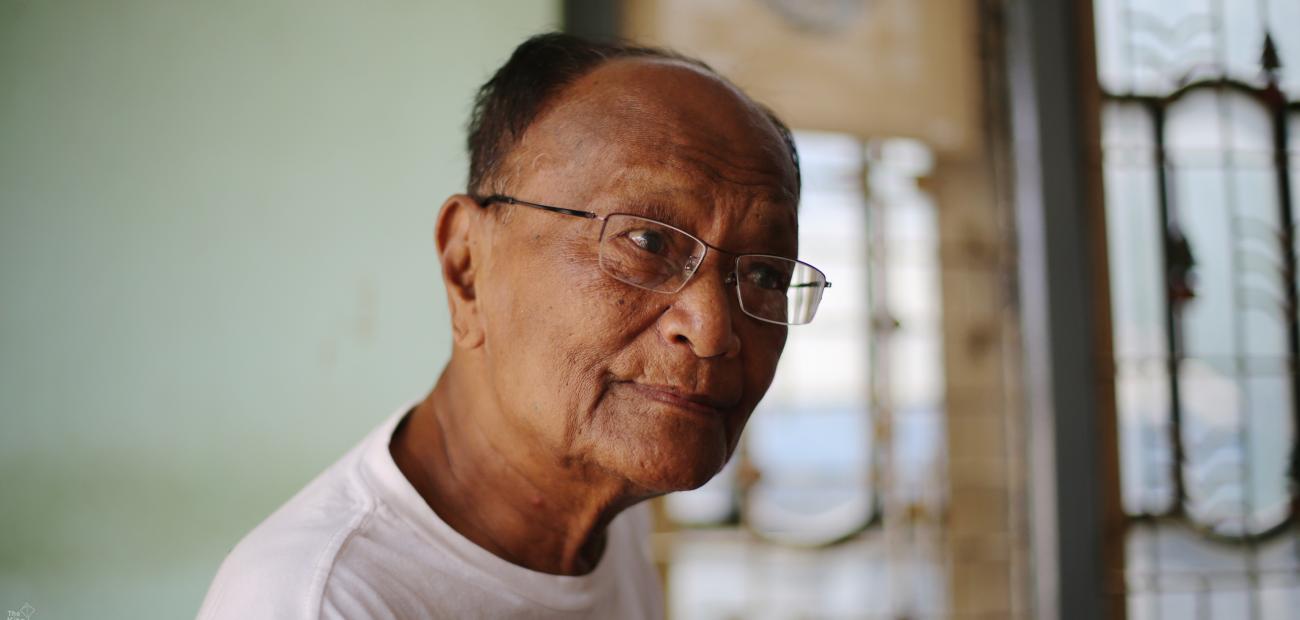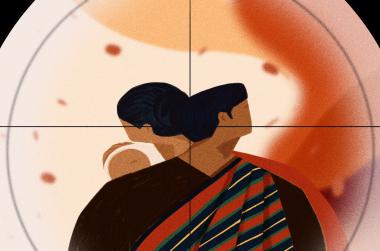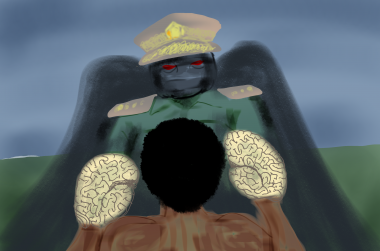A child of conflict, Ko Lay could recognise the drum beat of artillery shells before he turned ten. World War II swept into Myanmar in 1942 with the Japanese army, as it sought to push out British colonial forces with the help of local nationalists. B52s shriek overhead in his youthful memories and bodies litter the bomb-scarred streets. These impressions reverberate through the poetry of his later life and his outspoken activism for an end to Myanmar’s multiple civil conflicts.
Ko Lay — who added 'Innwa Gongyi' to his name as a nod to the school that fostered his literary talent — earned the ire of the former ruling junta for his close ties to the National League for Democracy (NLD) opposition movement, led by Aung San Suu Kyi. His poetry was banned in Myanmar for more than two decades.
Now the octogenarian is free to publish under Myanmar’s new NLD government. A father of seven, he retains the energy and passion of his younger days.
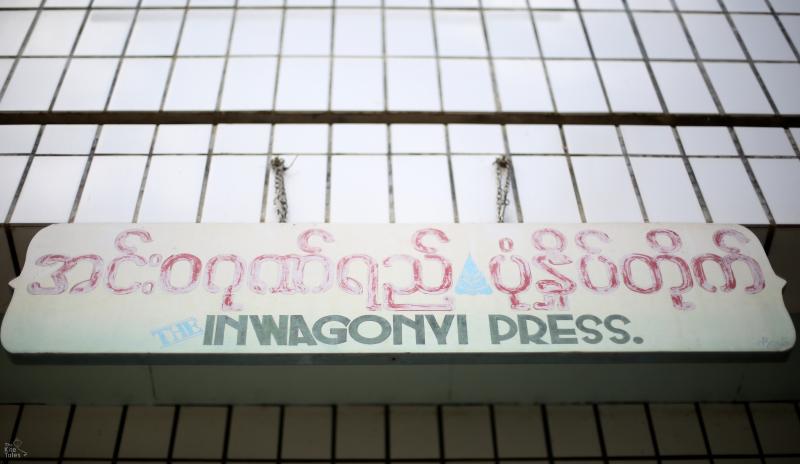
“Our lives began with the sound of explosions. I was six or seven during the Japanese occupation, going to school and living through it for three years. I learnt to write one, two, three, four, five in 1942, but by 1948 I'd learnt to distinguish all kinds of machine gun fire.
“We had to flee to the house whenever we could hear squadrons of fighter planes coming. I would grab a new longyi, vest, and towel.
“One day I heard the sound of machine gun fire but I continued to play as it didn't seem to worry my dad. Then he shouted, 'Hey, watch out! A B29 is incoming!' And with that I rushed into the bomb shelter to take cover. Once it was clear to come out I went up to the house and saw the mat where my father slept was riddled with bullet holes. I have kept that mat all these years, and still have it today. We were lucky he didn't die that day. We grew up amidst these battles, the sounds of gunfire and bombs.
“There was the big, old Inn Wa Bridge, known by many as Sagaing Bridge. One afternoon I heard the thunder of two huge mines exploding nearby. It was then that I discovered the meaning of tsunami. The Duhtawady River flowed north, from the corner of the front of our house, whilst the Ayeyarwady River flowed from east to west. It was here that our house stood. The river water and the boats that were on it, surged upstream. Birds flew from their perches, phone cables were broken and all the windows in our house shattered. This is how our lives really started with a bang!
“On my 50th birthday I reflected on my youth and found inspiration to write this poem (below is an extract):
Fifty year milestones
By 1942, I had learnt to write. One, two, three, four.
By 1948, I'd learnt to count the sounds of gun fire,
Mortar, grenades, small arms, artillery, pistols or rifles
Five bodies by the monastery, four bodies by the school,
Three dead on cemetery hill,
No skipping school when you see a body, not one day nor two…
The headmaster's rod on your back
Oh what a time, what a time
Eat quickly, don’t chew
A warning by my mother I can never forget in this life
Oh blossoms of peace. Let me know you before I die.
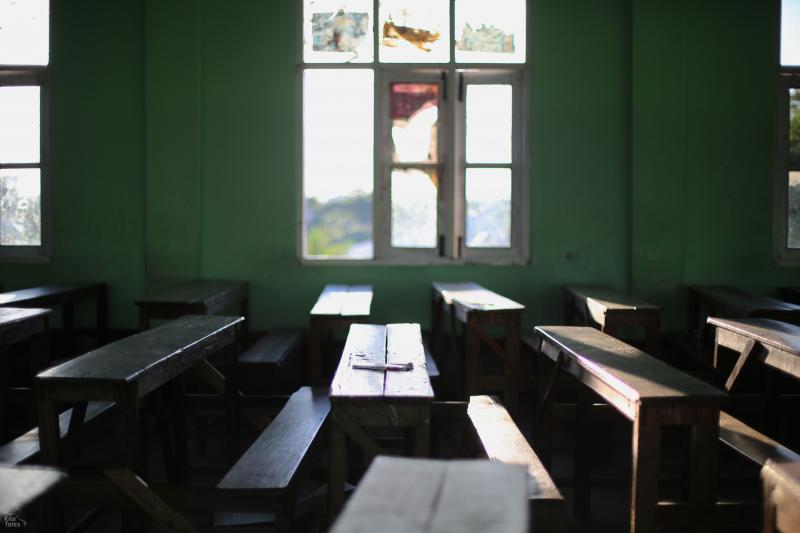
“Ever since my youth, political power has grown from the barrel of a gun. (It’s the idea that) We must support whoever the enemy opposes, and we must oppose whoever the enemy supports.
“(Myanmar activist-turned-political leader Aung San Suu Kyi) practices a non-violent approach. At first I didn’t like her non-violent approach to resolving conflict. But it is only after she reiterated her stance again — ‘I don't want to the next generation to inherit a legacy of violence’ — that I understood.
“Luck saved us from an early grave, which is why there are those of us who want to see an end to the civil wars that plague our nation to this day.
“(When I was growing up) we had to light kerosene lamps on both sides of our doorway. My grandfather gave me the responsibility to top-up the kerosene every day. ‘It's a meritorious deed,’ he would say. Light show travellers the path, and warns off any predators. I want to bring this light with my work, and I see the media as such a light.
“I want the next generation to inherit poetry, it civilises people. You can build a nation if you have a soul.
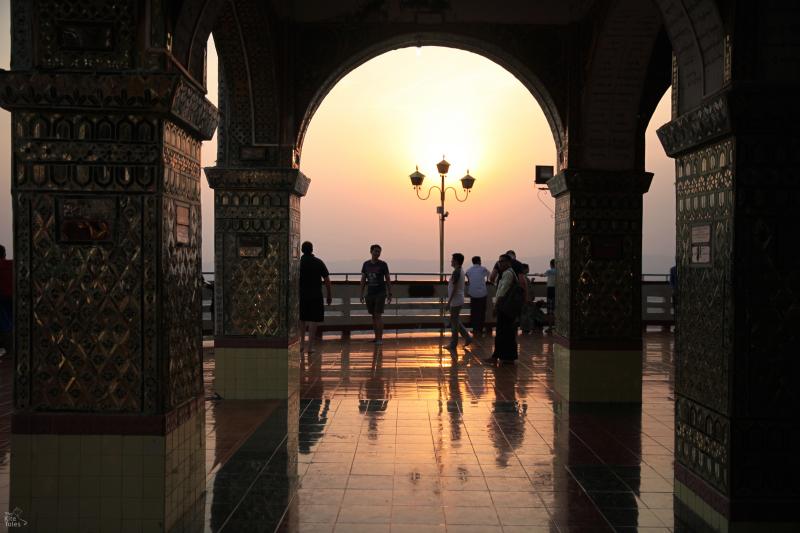
“My father used to get me to read Mahajanaka to him every night. The room was full of smoke which bellowed forth from our large oil lamp. He would help me with my pronunciation, pointing out areas where I stammered.
“I remember reading how the king in the Mahajanaka story went off into the forest to become a monk and how his queen followed him. In the final scene, the king picks at some blades of grass, tearing them away. ‘This grass can never be reconnected, just like you and I can never be together again,’ he said before turning away and leaving his queen forever. I remember bursting into tears. I am still grateful to my father for that early taste of fiction.
“One day he turned to me with a smile on his face. ‘My little future poet,’ he said.”
Ko Lay blames the former junta for the deterioration in education standards.
“One of my daughters once told me, ‘The teacher said if I can't answer my exams, I can copy the answers just by paying the teacher K500. Shall I give it, Dad?’ I asked her, ‘Can you do it by yourself?’ and she said yes.”
“There were these things known as the 'booklet', and it featured the answers to the exams. It was folded up many times so that it could be clandestinely snuck into an examination room in one's pocket. Those that sold them made a fortune. Universities in Mandalay and Yadanarbon, and even high schools, were full of people selling this much coveted answer sheet.
“(The military government) knew very well what they were doing. They were unplugging the mains of the education system. Without education there is no knowledge. And without knowledge, people can’t think for themselves, you end up just believing everything you are told. All they work towards is ensuring people became illiterate, for people are much easier to control if they aren't able to question the propaganda they are being fed.
“But in the end their lies got the better of them, for if you lie about one thing, you end up having to lie about something else until it slowly comes to the point where your bundle of lies completely unravels before you for the world to see. Honesty is the best policy in this life we live.”
(Interviewed September 2016)

